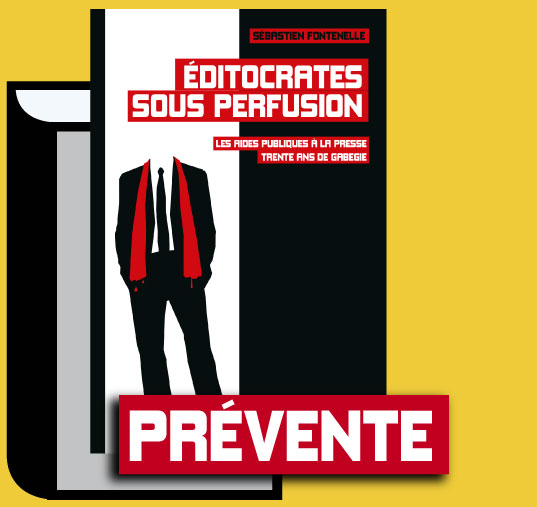 As the printed press has struggled to cope with the end of an era of plenty and the collapse of the newspaper business model, the odd voice has played with the idea of subsidising the press. Here’s why that might be an idea to be briefly considered, but it’s also one to reject.
As the printed press has struggled to cope with the end of an era of plenty and the collapse of the newspaper business model, the odd voice has played with the idea of subsidising the press. Here’s why that might be an idea to be briefly considered, but it’s also one to reject.
After all, such would-be saviours of the endangered species of printed news ask, don’t we all subsidise the BBC, to the tune of £4bn a year, through a licence fee which is a tax by another name? Do papers not enjoy a tax break by not paying VAT? Don’t other European countries do this and don’t they manage fine?
Not in France they don’t. Journalist Sebastien Fontenelle has just been having another go at newspaper and magazine subsidies there and bringing the story up to date. As he rightly remarks, major newspapers like Le Monde and Figaro use a lot of ink telling the state and government to reduce government spending and debt while hypocritically burying the figures on the subsidies they receive and doing nothing to abolish or reform the system.
Official figures show that the France spent €5bn between 2009 and 2011, amounting to 15% of the industry’s turnover. You might imagine that this money was distributed to high-minded but loss-making publications on politics and economics. In 2013, nearly €20m was handed to the four magazines devoted to TV listings and small screen celebs.
 In the same year, the magazine Closer received three times more than the monthly Le Monde Diplomatique (which really is about political economy). Closer was the magazine which published the pictures of President Francois Hollande’s amorous nocturnal rambles on a scooter.
In the same year, the magazine Closer received three times more than the monthly Le Monde Diplomatique (which really is about political economy). Closer was the magazine which published the pictures of President Francois Hollande’s amorous nocturnal rambles on a scooter.
The state’s spending watchdogs reported in 2013 that these subsidies had “not demonstrated their usefulness”, that they were poorly targeted and that the policy was a disappointing mess. The same watchdogs had made the same points back in 1985 without the slightest effect.
Fontenelle is mainly concerned with waste and unfairness. But the real damage done by this kind of sclerotic handout system is something else: an invisible, inaudible opportunity cost. Subsidy is a drug which suppresses the need to re-invent. It can put off – although probably not for ever – the dreadful day when journalists have got to look at what they do and ask whether their readers value it as they do.
There are energetic, inventive journalists in France doing just that and re-growing journalism in experimental start-ups. But the government is stacking the deck against rethinking.
Tags: BBC, Closer, Figaro, Le Monde, Le Monde Diplomatique, Sebastien Fontenelle





State subsidies for the press seem obscene to me. But so to is a press dominated by Murdoch and his ilk. Access to information has of course been expanded by Google, Facebook, Twitter and other social media so that other voices get some chance against the mind-influencing Fox “News”, controlled by the likes of the Murdochs, Koch Brothers and Karl Rove. Witness this week’s election results in the USA.